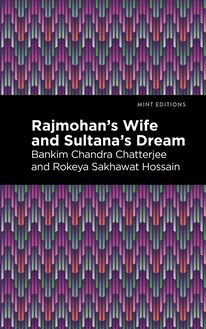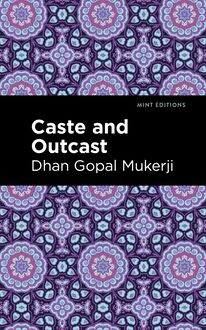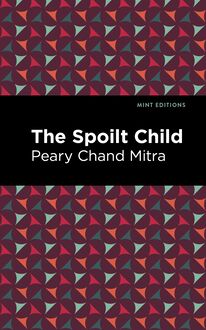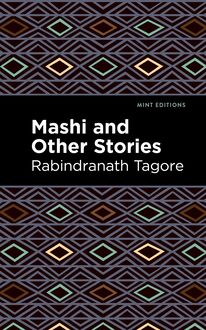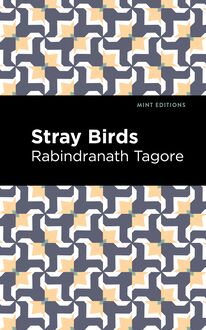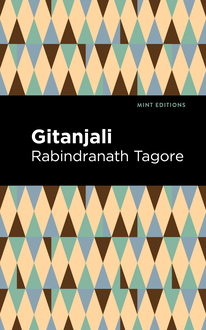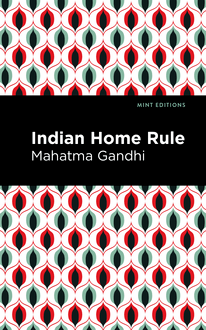-
 Univers
Univers
-
 Ebooks
Ebooks
-
 Livres audio
Livres audio
-
 Presse
Presse
-
 Podcasts
Podcasts
-
 BD
BD
-
 Documents
Documents
-
- Cours
- Révisions
- Ressources pédagogiques
- Sciences de l’éducation
- Manuels scolaires
- Langues
- Travaux de classe
- Annales de BEP
- Etudes supérieures
- Maternelle et primaire
- Fiches de lecture
- Orientation scolaire
- Méthodologie
- Corrigés de devoir
- Annales d’examens et concours
- Annales du bac
- Annales du brevet
- Rapports de stage
La lecture à portée de main
Vous pourrez modifier la taille du texte de cet ouvrage
Découvre YouScribe en t'inscrivant gratuitement
Je m'inscrisDécouvre YouScribe en t'inscrivant gratuitement
Je m'inscrisEn savoir plus
Vous pourrez modifier la taille du texte de cet ouvrage
En savoir plus

Description
Indian Home Rule (1909) is a book by Mahatma Gandhi. Originally written in Gujarati while the author was traveling from London to South Africa, Indian Home Rule or Hind Swaraj is a groundbreaking text that laid out some of Gandhi’s core beliefs as an activist and political thinker. Banned in 1910 by the British government in India as a seditious text, Indian Home Rule remains essential to Gandhi’s legacy in his native country and around the world. “It is my deliberate opinion that India is being ground down, not under the English heel, but under that of modern civilization. It is groaning under the monster's terrible weight. There is yet time to escape it, but every day makes it more and more difficult.” In Indian Home Rule, styled as a conversation between a Reader and an Editor, Gandhi makes his case for Indian independence or Swaraj, explains his concept of Swadeshi (self-reliance), and argues that the Indian people have it within their power to not only expel the British, but to govern themselves while remaining true to their cultural and religious traditions. Through his rejection of Western civilization and advocacy for nonviolent resistance, Gandhi laid the foundation for the vital work he would undertake upon returning to India in 1915. With a beautifully designed cover and professionally typeset manuscript, this edition of Mahatma Gandhi’s Indian Home Rule is a classic of Indian literature reimagined for modern readers.
Sujets
Informations
| Publié par | Mint Editions |
| Date de parution | 16 novembre 2021 |
| Nombre de lectures | 0 |
| EAN13 | 9781513217253 |
| Langue | English |
| Poids de l'ouvrage | 1 Mo |
Informations légales : prix de location à la page 0,0350€. Cette information est donnée uniquement à titre indicatif conformément à la législation en vigueur.
Extrait
Indian Home Rule
Mahatma Gandhi
Indian Home Rule was first published in 1909.
This edition published by Mint Editions 2021.
ISBN 9781513218250 | E-ISBN 9781513217253
Published by Mint Editions®
minteditionbooks.com
Publishing Director: Jennifer Newens
Design & Production: Rachel Lopez Metzger
Project Manager: Micaela Clark
Typesetting: Westchester Publishing Services
C ONTENTS F OREWORD H IND S WARAJ O R T HE I NDIAN H OME R ULE I. T HE C ONGRESS AND ITS O FFICIALS II. T HE P ARTITION OF B ENGAL III. D ISCONTENT AND U NREST IV. W HAT IS S WARAJ ? V. T HE C ONDITION OF E NGLAND VI. C IVILIZATION VII. W HY WAS I NDIA L OST ? VIII. T HE C ONDITION OF I NDIA IX. T HE C ONDITION OF I NDIA ( CONTINUED ): R AILWAYS X. T HE C ONDITION OF I NDIA ( CONTINUED ): T HE H INDUS AND THE M AHOMEDANS XI. T HE C ONDITION OF I NDIA ( CONTINUED ): L AWYERS XII. T HE C ONDITION OF I NDIA ( CONTINUED ): D OCTORS XIII. W HAT IS TRUE C IVILIZATION ? XIV. H OW C AN I NDIA B ECOME F REE ? XV. I TALY AND I NDIA XVI. B RUTE -F ORCE XVII. P ASSIVE R ESISTANCE XVIII. E DUCATION XIX. M ACHINERY XX. C ONCLUSION A PPENDICES
F OREWORD
I have re-read this booklet more than once. The value at the present moment lies in re-printing it as it is. But if I had to revise it, there is only one word I would alter in accordance with a promise made to an English friend. She took exception to my use of the word ‘prostitute’ in speaking of the Parliament. Her fine taste recoiled from the indelicacy of the expression. I remind the reader that the booklet purports to be a free translation of the original which is in Gujarati.
After years of endeavour to put into practice the views expressed in the following pages, I feel that the way shown therein is the only true way to Swaraj. Satyagrah—the law of love is the Law of life. Departure from it leads to disintegration. A firm adherence to it leads to regeneration.
B OMBAY ,
28th May, 1919 M. K. G ANDHI
H IND S WARAJ O R T HE I NDIAN H OME R ULE
Reply to Critics
I t is certainly my good fortune that this booklet of mine is receiving wide attention. The original is in Gujarati. It had a chequered career. It was first published in the columns of the ‘Indian Opinion’ of South Africa. It was written in 1908 during my return voyage from London to South Africa in answer to the Indian school of violence, and its prototype in South Africa. I came in contact with every known Indian anarchist in London. Their bravery impressed me, but I feel that their zeal was misguided. I felt that violence was no remedy for India’s ills, and that her civilization required the use of a different and higher weapon for self-protection. The Satyagrah of South Africa was still an infant hardly two years old. But it had developed sufficiently to permit me to write of it with some degree of confidence. It was so much appreciated that it was published as a booklet. It attracted some attention in India. The Bombay Government prohibited its circulation. I replied by publishing its translation. I thought that it was due to my English friends that they should know its contents. In my opinion it is a book which can be put into the hands of a child. It teaches the gospel of love in the place of that of hate. It replaces violence with self-sacrifice. It pits soul force against brute force. It has gone through several editions and I commend it to those who would care to read it. I withdraw nothing except one word of it, and that in deference to a lady friend. I have given the reason for the alteration in the preface to the Indian edition.
The booklet is a severe condemnation of ‘modern civilization.’ It was written in 1908. My conviction is deeper today than ever. I feel that if India would discard ‘modern civilization’ she can only gain by doing so.
But I would warn the reader against thinking that I am today aiming at the Swaraj described therein. I know that India is not ripe for it. It may seem an impertinence to say so. But such is my conviction. I am individually working for the self-rule pictured therein. But today my corporate activity is undoubtedly devoted to the attainment of Parliamentary Swaraj in accordance with the wishes of the people of India. I am not aiming at destroying railways or hospitals, though I would certainly welcome their natural destruction. Neither railways nor hospitals are a test of a high and pure civilization. At best they are a necessary evil. Neither adds one inch to the moral stature of a nation. Nor am I aiming at a permanent destruction of law courts, much as I regard it as a ‘consummation devoutly to be wished for.’ Still less am I trying to destroy all machinery and mills. It requires a higher simplicity and renunciation than the people are today prepared for.
T HE ONLY PART OF THE programme which is now being carried out in its entirety is that of non-violence. But I regret to have to confess that even that is not being carried out in the spirit of the book. If it were, India would establish Swaraj in a day. If India adopted the doctrine of love as an active part of her religion and introduced it in her politics, Swaraj would descend upon India from heaven. But I am painfully aware that that event is far off as yet.
I offer these comments because I observe that much is being quoted from the booklet to discredit the present movement. I have even seen writings suggesting that I am playing a deep game, that I am using the present turmoil to foist my fads on India, and am making religious experiments at India’s expense. I can only answer that Satyagrah is made of sterner stuff. There is nothing reserved and nothing secret in it. A portion of the whole theory of life described in ‘Hind Swaraj’ is undoubtedly being carried into practice. There is no danger attendant upon the whole of it being practised. But it is not right to scare away people by reproducing from my writings passages that are irrelevant to the issue before the country.
M. K. G ANDHI
Young India, 26th January, 1921
I
T HE C ONGRESS AND ITS O FFICIALS
R EADER : Just at present there is a Home Rule wave passing over India. All our countrymen appear to be pining for National Independence. A similar spirit pervades them even in South Africa. Indians seem to be eager after acquiring rights. Will you explain your views in this matter?
E DITOR : You have well put the question, but the answer is not easy. One of the objects of a newspaper is to understand the popular feeling and to give expression to it; another is to arouse among the people certain desirable sentiments; and the third is fearlessly to expose popular defects. The exercise of all these three functions is involved in answering your question. To a certain extent the people’s will has to be expressed; certain sentiments will need to be fostered, and defects will have to be brought to light. But, as you have asked the question, it is my duty to answer it.
R EADER : Do you then consider that a desire for Home Rule has been created among us?
E DITOR : That desire gave rise to the National Congress. The choice of the word “National” implies it.
R EADER : That, surely, is not the case. Young India seems to ignore the Congress. It is considered to be an instrument for perpetuating British Rule.
E DITOR : That opinion is not justified. Had not the Grand Old Man of India prepared the soil, our young men could not have even spoken about Home Rule. How can we forget what Mr. Hume has written, how he has lashed us into action, and with what effort he has awakened us, in order to achieve the objects of the Congress? Sir William Wedderburn has given his body, mind and money to the same cause. His writings are worthy of perusal to this day. Professor Gokhale, in order to prepare the Nation, embraced poverty and gave twenty years of his life. Even now, he is living in poverty. The late Justice Buddrudin Tyebji was also one of those who, through the Congress, sowed the seed of Home Rule. Similarly in Bengal, Madras, the Punjab and other places, there have been lovers of India and members of the Congress, both Indian and English.
R EADER : Stay, stay, you are going too far, you are straying away from my question. I have asked you about Home or Self-Rule; you are discussing foreign rule. I do not desire to hear English names, and you are giving me such names. In these circumstances, I do not think we can ever meet. I shall be pleased if you will confine yourself to Home Rule. All other wise talk will not satisfy me.
E DITOR : You are impatient. I cannot afford to be likewise. If you will bear with me for a while, I think you will find that you will obtain what you want. Remember the old proverb that the tree does not grow in one day. The fact that you have checked me, and that you do not want to hear about the well-wishers of India, shows that, for you at any rate, Home Rule is yet far away. If we had many like you, we would never make any advance. This thought is worthy of your attention.
R EADER : It seems to me that you simply want to put me off by talking round and round. Those whom you consider to be well-wishers of India are not such in my estimation. Why, then, should I listen to your discourse on such people? What has he whom you consider to be the father of the nation done for it? He says that the English Governors will do justice, and that we should co-operate with them.
E DITOR : I must tell you with all gentleness that it must be a matter of shame for us that you should speak about that great man, in terms of disrespect. Just look at his work. He has dedicated his life to the service of India. We have learned what we know from him. It was the respected Dadabhai who taught us that the English had sucked our life-blood. What does it matter that, today, his trust is still in the English nation? Is Dadabhai less to be honoured because, in the exuberance of youth, we are prepared to go a step further? Are we, on that account, wiser than he? It is
-
 Univers
Univers
-
 Ebooks
Ebooks
-
 Livres audio
Livres audio
-
 Presse
Presse
-
 Podcasts
Podcasts
-
 BD
BD
-
 Documents
Documents
-
Jeunesse
-
Littérature
-
Ressources professionnelles
-
Santé et bien-être
-
Savoirs
-
Education
-
Loisirs et hobbies
-
Art, musique et cinéma
-
Actualité et débat de société
-
Jeunesse
-
Littérature
-
Ressources professionnelles
-
Santé et bien-être
-
Savoirs
-
Education
-
Loisirs et hobbies
-
Art, musique et cinéma
-
Actualité et débat de société
-
Actualités
-
Lifestyle
-
Presse jeunesse
-
Presse professionnelle
-
Pratique
-
Presse sportive
-
Presse internationale
-
Culture & Médias
-
Action et Aventures
-
Science-fiction et Fantasy
-
Société
-
Jeunesse
-
Littérature
-
Ressources professionnelles
-
Santé et bien-être
-
Savoirs
-
Education
-
Loisirs et hobbies
-
Art, musique et cinéma
-
Actualité et débat de société
- Cours
- Révisions
- Ressources pédagogiques
- Sciences de l’éducation
- Manuels scolaires
- Langues
- Travaux de classe
- Annales de BEP
- Etudes supérieures
- Maternelle et primaire
- Fiches de lecture
- Orientation scolaire
- Méthodologie
- Corrigés de devoir
- Annales d’examens et concours
- Annales du bac
- Annales du brevet
- Rapports de stage



